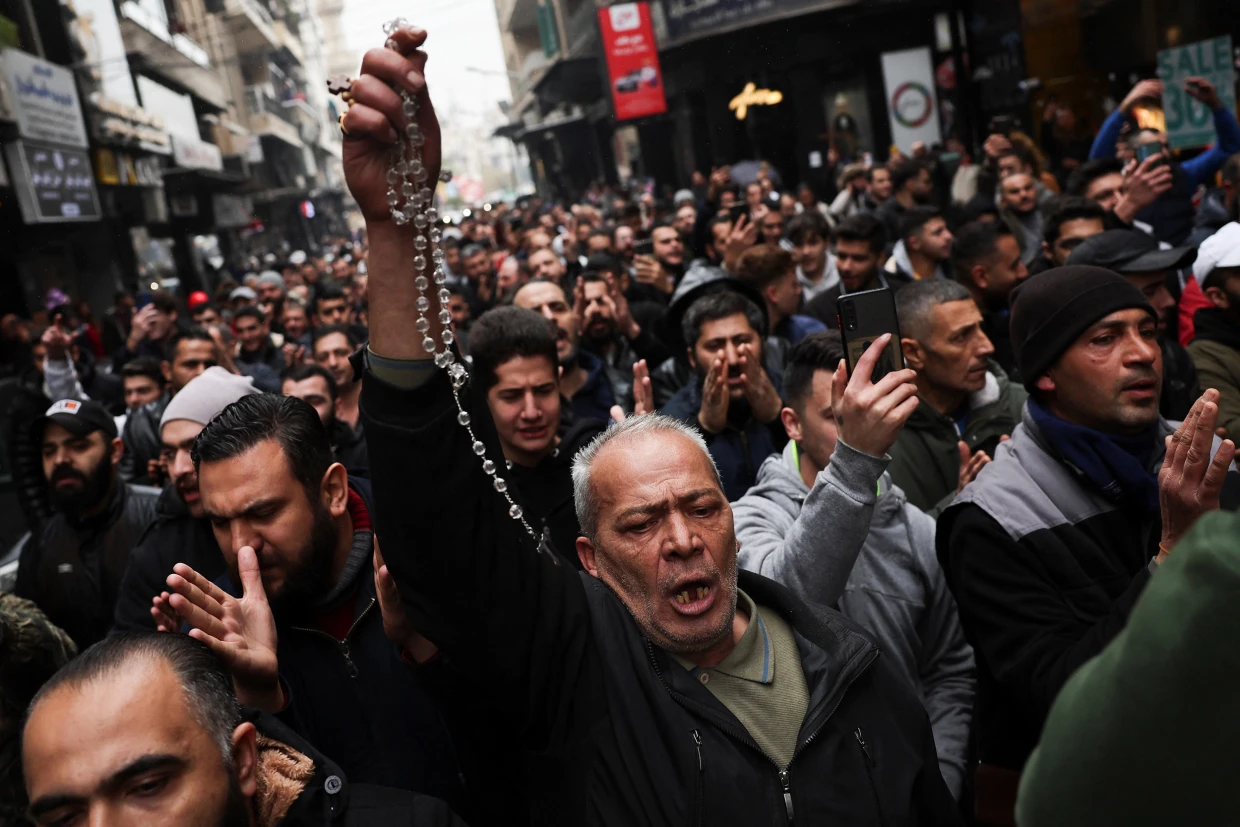In Damascus, protests erupted in Christian-majority areas following the burning of a Christmas tree in the town of Al-Suqalabiyah, which raised fears of crackdowns on religious minorities in post-Assad Syria. The incident occurred on Monday evening when a group of hooded figures were filmed setting fire to a tree in a central traffic circle.
This act of vandalism sparked outrage, and videos circulated showing demonstrators in Damascus chanting pro-Christian slogans like “Raise your cross, raise it!” and expressing solidarity with the town.
The Syrian Observatory for Human Rights identified the attackers as members of the Islamist group Ansar al-Tawhid, which is known for its radical ideologies. After the tree burning, tensions flared between the assailants and local residents, resulting in clashes involving stone-throwing.
In response, a representative of the dominant rebel group, Hayat Tahrir al-Sham (HTS), stepped in to assure the Christian community that the attackers would be punished, and a new Christmas tree was erected the same night, reinforcing the message of resilience.
Syria’s new de facto leader, Ahmed al-Sharaa, has been working to position himself as a protector of minorities in the country. His rise to power followed a swift offensive that ousted former President Bashar al-Assad.

However, the presence of HTS, with its roots in radical Sunni extremism, has left many of Syria’s religious minorities—Christians, Alawites, Druze, and Yazidis—anxious about their future under this new leadership. Al-Sharaa has attempted to ease these concerns, promising an inclusive government that will represent all religious and ethnic groups in Syria.
Despite the concerns, al-Sharaa’s leadership has shown signs of moderation. The Syrian government declared a public holiday for Christmas, and al-Sharaa has made efforts to distance himself from his past associations with jihadist groups like Al-Qaeda and ISIS.
Following recent meetings with U.S. diplomats, al-Sharaa committed to ensuring that Syria would not become a safe haven for terrorist groups, which led to discussions about lifting the U.S. bounty on his head. The Biden administration is also weighing whether to remove HTS from its list of terrorist organizations, contingent on al-Sharaa’s continued commitment to building a more inclusive and stable Syria.
Al-Sharaa’s leadership has included efforts to unify the country’s fractured security forces, with agreements to dissolve rebel factions and incorporate them into the state’s defense ministry. However, violence continues to plague the country, as demonstrated by a recent attack in Manbij, where two people were killed and several others injured.
These incidents highlight the challenges al-Sharaa faces in restoring order and stability to a country scarred by years of conflict and authoritarian rule. The situation remains fluid, with the international community closely monitoring the actions of Syria’s new leadership.


